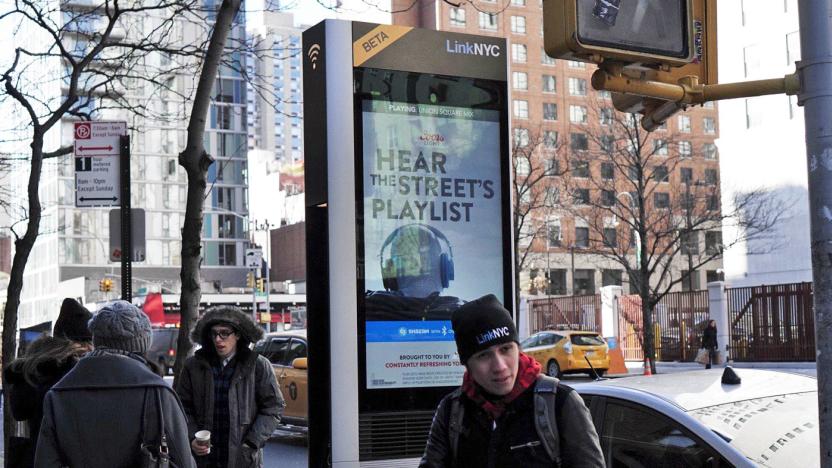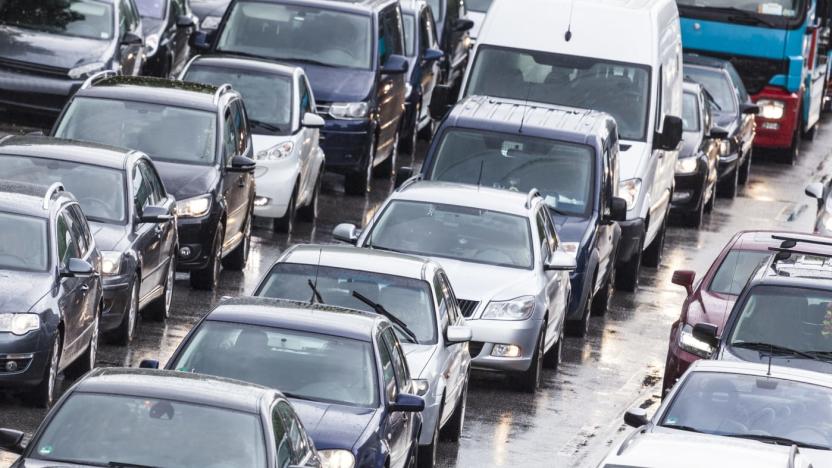timeline16smarturbcity
Latest

Google sister company wants to build smart city districts
Forget just providing internet access on city streets -- Google's sister firm Sidewalk Labs wants to create whole smart neighborhoods. Wall Street Journal sources hear that Sidewalk is about to propose to Alphabet that it should design whole city districts with technology in mind. It wants to revamp existing areas (likely in declining cities) with everything from higher-tech electrical grids to self-driving cars. It's even hoping to get city regulation waivers so that it can experiment with elements as basic as street design.

German city designs traffic lights for oblivious pedestrians
The German city of Augsburg has taken a novel approach to dealing with pedestrians too buried in their smartphone screens to notice traffic signals. By embedding flashing red LEDs in the sidewalks at busy pedestrian crossings, the city has moved those signals right into their line of sight.

DoT and Alphabet plan to battle gridlock
Department of Transportation secretary Anthony Foxx and Alphabet's Sidewalk Labs announced a transportation platform today called Flow. The system will grab data from in-the-street sensors, WiFi-enabled Kiosks and anonymized information from Google-owned apps Maps and Waze to help inform cities about traffic. It will be rolled out to the winner of the Smart City Challenge for no cost.

Chicago is getting lamp posts that count people and track pollution
Apparently, Chicago is becoming even more like its Watch Dogs doppelganger than we first thought. Researchers are deploying networked, sensor-equipped lamp posts from this July onward to learn how they could help urban planning and safety. They'll collect environmental data like air quality, noise levels and wind, and they'll also measure foot traffic by counting the number of passing cellphones. If the project takes off, Chicago officials could easily tell if air pollution is on the rise, or if a narrow sidewalk is creating a choke point.

Intel and San Jose's smart city will use real-time data to monitor air quality and more
Today Intel announced a partnership with the city of San Jose, with the goal of improving quality of life through real-time data tracking of air quality, traffic flow and more. The six-month pilot program is Intel's first "smart city" implementation in the US, and it's being presented today as part of the White House SmartAmerica Challenge in Washington, DC.

New York's next big neighborhood is its smartest
"It was always going to be tomorrow's city today. A new heart of New York City; Midtown expanding west." -- Thad Sheely, SVP operations for Related Companies Tourists come to stop and stare, and sometimes throw pennies. This isn't a long-standing tradition. There are no wishes to make here. It's just a construction site they're filling with change; "the largest development in New York City since Rockefeller Center." Its 28 acres span west from 10th Avenue to 12th Avenue and the Hudson River, and north from 30th Street to 34th Street. The site is home to the final piece of the High Line park; an extension of the number 7 subway line; five office towers and nearly 5,000 residences; 14 acres of public space; a public school; and an active rail yard, from which it gets its name. This is Hudson Yards: New York City's first truly smart neighborhood. Or, it will be when New York University's Center for Urban Science and Progress (CUSP), a partner for the development, finishes outfitting it with sensors.

SmartScreens begin rollout to NYC payphones, City24/7 and Cisco eying expansion to additional cities
Slowly but surely, payphones around New York City are losing their innocence. As planned, City24/7 has started to convert seldom-used booths into LCD-equipped information kiosks, with so-called SmartScreens broadcasting "neighborhood news, current events and entertainment listings, local deals and specials." We're told that multiple mobile apps are being made available via the 32-inch multitouch panels, though as of now, only ten installations have gone live. Over the next several months, the number of installations will increase to up to 250 participating phone booths throughout the five boroughs, and once it's reached saturation in the Big Apple, City24/7 and Cisco are planning to expand into over a dozen other foreign and domestic cities. The SmartScreens are designed to use real-time, location-based services, tied in to the network throughout the city, and moreover, each booth is equipped with gratis WiFi, NFC and Bluetooth capabilities. In other words, they're fit to live in.




